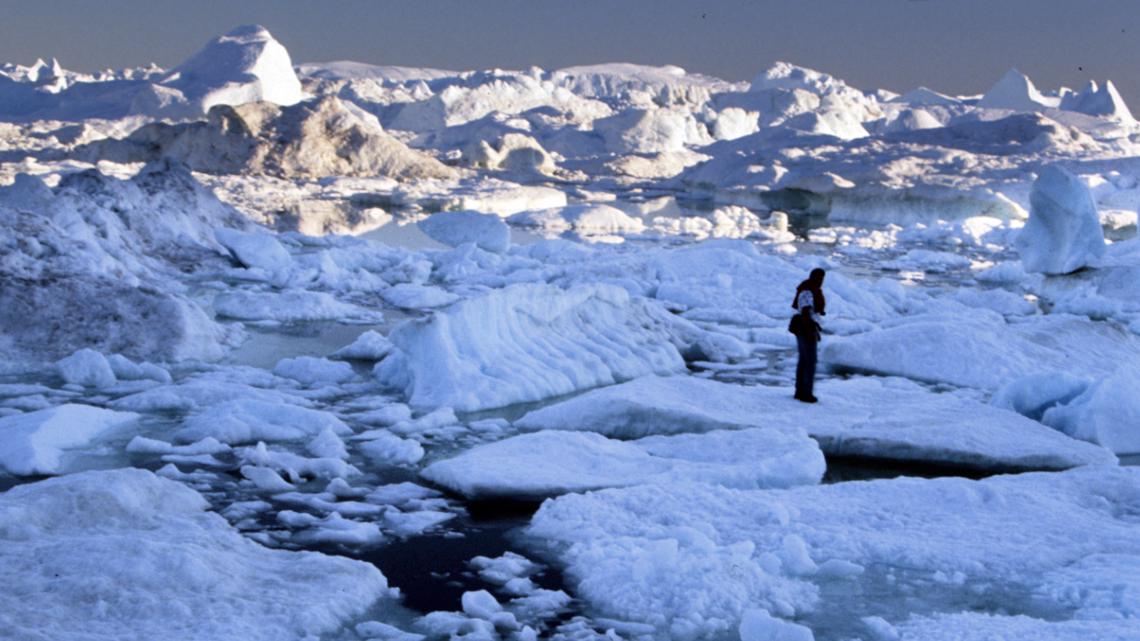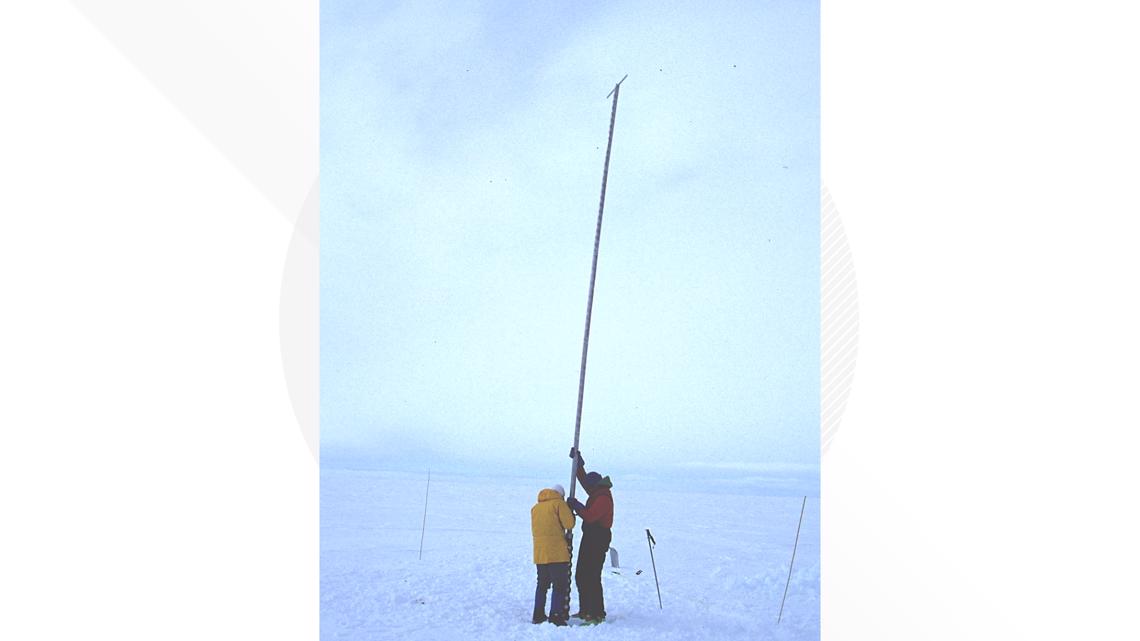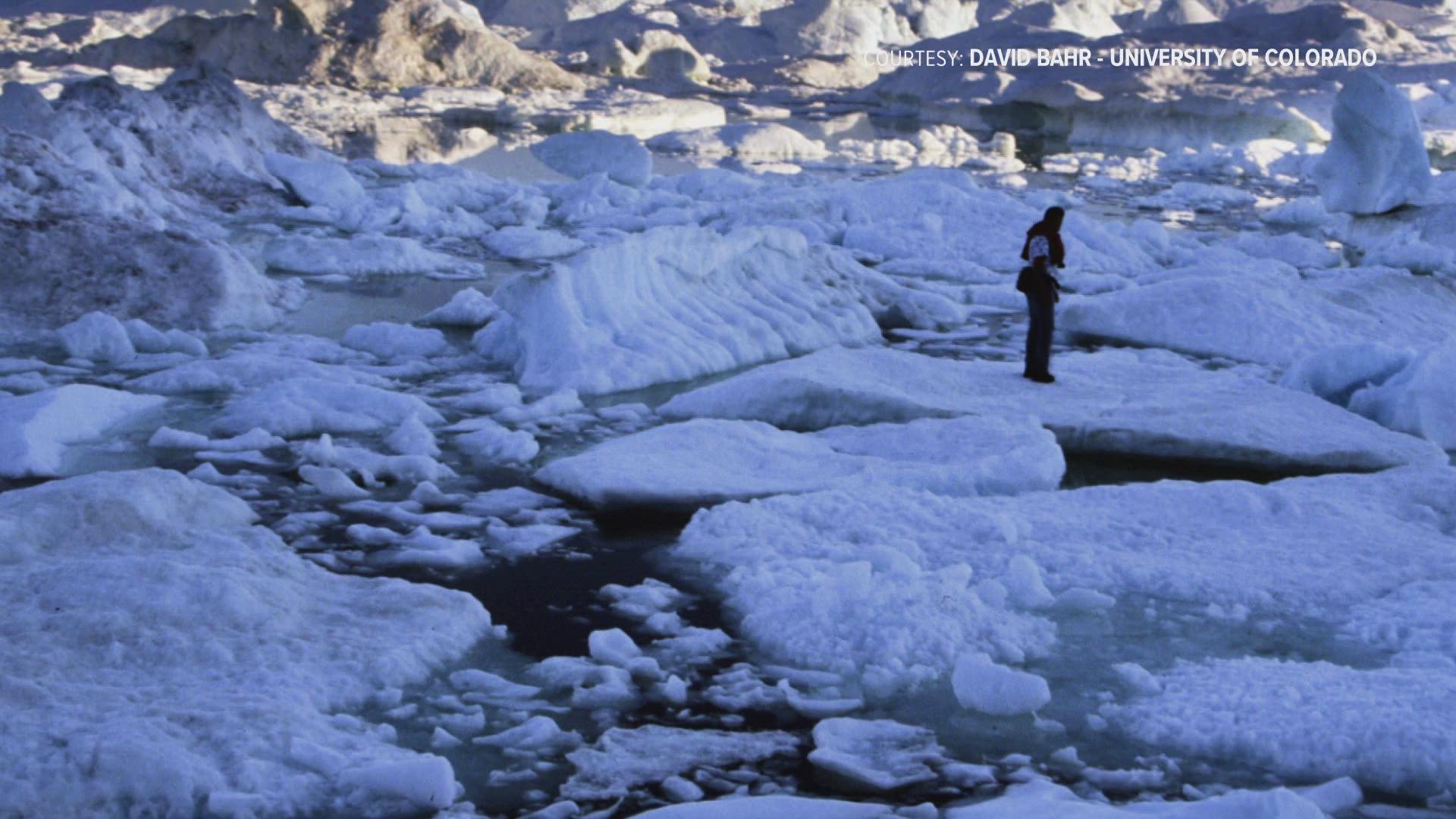BOULDER, Colo. — Greenland's ice sheet is six times larger than the state of Colorado, and according to experts, it's melting at an alarming rate.
"The changes I've seen over the last 30 years are dramatic," said glaciologist David Bahr with the University of Colorado. "I first skied across the ice sheet during a research project in 1991, and today many of those places are freshwater ice lakes."
He said the melting is a result of climate change brought on by the burning of fossil fuels by humans. And climate change is happening much faster near the poles than it's happening in the mid-latitudes.
"We're used to geologic timescales for glaciers, right? They slowly flow down a mountain," Bahr said. "But no, we are seeing these changes very, very rapidly. In a matter of decades."


Up until now, scientists have generally used computer modeling to estimate the rate that the ice sheet is melting, but after spending time gathering real data from the ice over the last 30 years, Bahr said the Greenland ice sheet is melting twice as fast as computers have been predicting.
That means the oceans are rising.
"Our work on the ice sheet shows that we're going to get at least 11 inches. That's the bare minimum of sea-level rise from the damage we've already done," he said.
He said that's sea level rise that will occur as a result of the climate change that humans have inflicted on the atmosphere up to now. There will be further melt because the climate is expected to continue warming in the years to come.


Bahr just had his latest study published in August. He said the rise will likely be closer to two and half feet. And that's just from Greenland.
There are other sources of sea level rise. He said Greenland accounts for about 40%, other ice melt contributes about 20%, and close to 40% is a result of ocean water expansion. When water bodies heat up, it causes expansion.
Bad news for coastal communities, but Bahr said indirectly, we will all be impacted.
"We are all paying for damage along the coastlines. We're paying for Hurricane Ian right now," he said. "So, we may live in Colorado, but it affects our bottom lines as well."
He said if sea level was two feet higher when Hurricane Ian hit the west coast of Florida two weeks ago, the storm surge damage could have stretched another four miles inland -- maybe more.
Bahr also said as the melting increases over the next 30 years, many people are expected to move away from their homes on America's coastlines.
"Denver is actually predicted to be one of the places that is going to have to receive people from the coasts. And we have our own climate issues," he said.
Colorado may also be impacted by changes in weather patterns caused initially by the ice melt from Greenland. He said the climate system is all interconnected. If additional fresh water is added to the ocean, it can create an unbalanced mix of salinity and temperature that could offset ocean currents and ultimately atmospheric circulations.
"We can expect to see far worse droughts in Colorado and more fires," he said. "Things we are already seeing, just on a more extreme scale."
SUGGESTED VIDEOS: Colorado Climate

